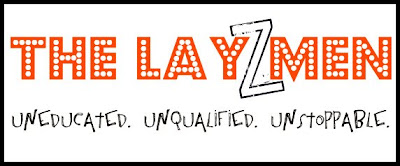
"
What is twisted cannot be straightened; what is lacking cannot be counted."
Solomon's Advantages
Solomon closed the first section of Ecclesiastes with a lament about being forgotten after his death. This pessimistic look into his future is followed with a look back into his past. He reminds us of his high position in Israel as king (1:12) and goes on to explain that he sought to explore with his wisdom everything that a person could pursue in this life (1:13).
.
Solomon's wealth and power afforded him virtually unlimited resources to undertake this quest. There may be some alive today who have the wealth of Solomon, but none wield the absolute power he had. When he speaks to us about his search for meaning using unlimited power and means, we should pay attention. Unfortunately for Solomon all of this searching did not bring about the desired result. We have already been given his conclusion (1:2) and verse 13 begins his systematic overview of all of his areas of seach as well as things he learned along the way.
.
His careful examination of the human condition revealed what he considered to be a great burden (1:13). No matter what a person pursues in this life or how hard they pursue it, the ultimate result will be a sense of emptiness. A key phrase here again is under the sun. Meaning cannot be derived from experiences of this world alone.
The World is Jacked Up

If you don't believe that, you haven't watched a Tom Cruise movie lately. If you think the world is a great place, let me suggest you watch War of the Worlds or Mission Impossible 3. Terrible.
.
.
Solomon points out the messed up nature of things in verse 15. When we examine the world, we can't help but notice something is wrong. Things don't feel right. How did they get this way?
.We are told in Genesis that after man sinned God cursed the ground. Romans 8:20 sheds more light on this curse. There we are told that "the creation was subjected to frustration, not by its own choice, but by the one who subjected it." Our experience of reality, the world around us and our lives, has been "twisted". As 1:15 says, what is lacking cannot be counted. The life that God set before Adam and Eve was like a road that was simple to traverse. Man was to cultivate the Earth and his life which would be a joyous process inwhich man would partner with creation. Unfortunately, as a result of man's sin, the creation was cursed and now works against him. Despite the good that can be expereienced in the world, the road of life has been twisted and made crooked. That fact is, for Solomon and us, a tremendous frustration and burden (1:13).
.
Solomn's Pride/Wisdom/Disappointment
After Solomon observes the condition of the world, he returns to the recounting of his quest. In pride, he examines himself and concludes that he is more wise than any who have come before him (1:16). This scene is remeniscent of Nebuchadnezzar's prideful declaration that he had built Babylon the great with his own strength (Dan. 4:29-30). That statement preceded a great fall that eventually brought brokeness and humility. The humbling of Nebuchadnezzar involved him living life in madness as an animal. Interestingly, Solomon's experience would be somewhat similar and would bring humility and a turning towards God.
.
Solomon tells us that he decided to pursue both wise and foolish living (1:17). This verse is really a summary of all that is to follow in the book as he will go on to describe each of these pursuits in detail as well as the lessons he learned along the way. His ultimate conclusion is again repeated, all of his efforts were akin to attempting to catch the wind. The chapter itself concludes with a terribly sad but true statement.
.
"For with much wisdom comes much sorrow;
the more knowledge, the more grief."
.The more we come to know about the world around us and the older we get, the more we come to see the fallen condition of both the world and ourselves. Solomon pursued happiness, pleasure, and meaning in this life with limitless resources and power. All he got in return was misery and disappointment because this world and nothing in it can ever fully satisfy our deepest longings. C.S. Lewis made a similar observation in Mere Christianity.
.
"Creatures are not born with desires unless satisfaction for those desires exist. A baby feels hunger; well, there is such a thing as food. Men feel sexual desire; well, there is such a thing as sex. If I find in myself a desire which no experience in this world can satisfy, the most probable explanation is that I was meant for another world. If none of my earthly pleasures satisfy it, that does not mean that the universe is a fraud. Probably earthly pleasures were never meant to satisfy it, but only to arouse it, to suggest the real thing."
Solomon mistakenly believed that he could find enjoyment and satisfaction through the various pursuits of life. He learns the hard way that the world is a broken place that cannot be enjoyed or truly experienced apart from knowing the one who made it.
I heard a preacher say it this way: Life is like a can of peaches. It can be sweet, delicious, and enjoyable as long as you can get to it. You can look at the picture on the outside and imagine the taste, but without a can opener you can't truly experience the peaches. Life is like a can of peaches, but apart from God giving us the ability to enjoy it, we will only experience a shadow of what it could be. Solomon came to the conclusion that he had to acknowledge God to find meaning and purpose but took the long, hard road to make that discovery.
Do we look for satisfaction in this world?
.
Do we believe that our wisdom, or wealth, or power will bring us joy in this life?
May we look to the Lord as the one who gives our lives meaning and may we in turn enjoy the work of our hands that He has placed before us.


















 "What is twisted cannot be straightened;
"What is twisted cannot be straightened; 





.jpg)






.jpg)
.jpg)
.jpg)
.jpg)









